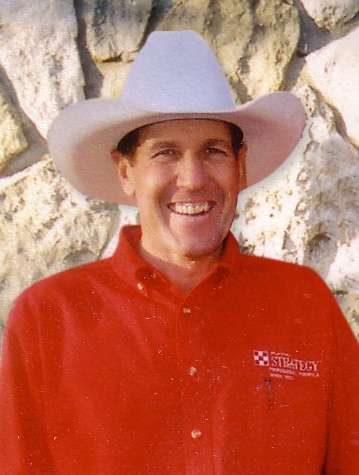Horses are an important part of the animal industry in Kansas.
Thus, the 2022 Kansas Ag Summit dedicated one program to the Kansas Equine Sector.
The public program was sponsored by the Kansas Department of Agriculture at Manhattan where Sammy Gleason introduced the session.
“Historically, horses were a significant part of the original cattle ranching infrastructure in Kansas,” Gleason said. “Although no data completely identifies the number of horses in Kansas, horses remain an important part of the state’s animal industry.”
Justine Staten, executive director of the Kansas Horse Council, served as moderator for the Kansas Ag Summit Equine Sector panel.
“Opportunity exists to significantly expand support for the horse industry in Kansas,” Staten emphasized.
Horses serve many purposes across the state from pleasure and competition to work uses. “To fully realize the horse industry’s potential requires increased focus on the challenges that currently prevent growth,” Staten said.
“Many challenges can be overcome with input and discussion among key partners committed to long-term strategic growth,” Staten continued.
Keith Kleine, American Association of Equine Practitioners (AAEP) official, also heads the Foundation for the Horse.
“Supporting education, research, and benevolence, the Foundation for the Horse wants every horse, everywhere, cared for and respected,” Kleine said. “We are dedicated to improving horse health and well-being, relying on expertise of world-renowned caregivers and researchers in identifying needs.”
Horses are suffering in the war-torn Ukraine, according to Kleine. “The Foundation is working to provide feed, veterinary services, and equipment for Ukrainian horses,” he said. “Most of the 2,000 horses are stabled with accessibility quite difficult although safety is utmost concern for horses and services.
“Please join us as we bring our vision of improving the welfare of horses to life,” Kline encouraged.
Billy Smith representing U.S. Livestock Genetics Exports (USLGE) briefly discussed opportunities for equine genetics exports.
“Our mission is to better serve world markets with superior horse genetics from leading, progressive horse breeders,” Smith said. “We represent international marketing interests of the horse breeding industry.”
Members include the embryo and semen industries, livestock export sector, and Departments of Agriculture.
“We match international producers with sources in the United States that offer genetics with superior credentials,” Smith said. “This unique broad-based team offers you more sources for superior performance-oriented genetics than any other group in the world.”
Amateur status of horse show exhibitors has become a controversial issue among all horse breed associations. Smith joined Ward Stutz, American Quarter Horse Association (AQHA), and Tom O’Mara, United States Equestrian Federation (USEF), discussing the problem
Briefly, Smith pointed out, “Youth ages six to 10 decide their lifetime sports and athletic interest. Horses are one option, but there is a shortage of knowledgeable horse people to guide youth in that direction.”
AQHA’s Stutz said, “There is a shortage of lesson givers. Those competing in amateur competition are not allowed to be compensated for helping this younger generation.”
USEF’s O’Mara pointed out prospective rule changes allowing amateurs to provide introductory horsemanship lessons to youth and adults. “There has been rebuttal among horse professionals,” O’Mara admitted. “But exactly what is or who is a professional, a trainer, a judge, horseshow secretary?
“Horse associations must modify their definition of amateur, so we don’t lose horse enthusiasts for the future,” O’Mara demanded. “Amateurs helping create more involvement in showing horses will be an asset to professional trainers rather than a deterrent. They will have more customers in the long run.”
Kansas State Fair General Manager Bryan Schulz discussed the newest facility upgrades finished at the fairgrounds in Hutchinson.
“Our Expo Center, that’s our equestrian center,” Schulz said. “We did about a $1.3 million renovation on that building. New roof, new heat, new side panels, new insulation, new lighting.
“I mean, it looks fantastic in there,” Schulz boasted. “Obviously, there are little things that we need that weren’t in the budget. We’re going to be working on them in the next couple of years. A new sound system should be going in there shortly.”
An equine unit and ag competition complex to be identified as the K-State Animal Sciences Gateway is planned at Manhattan.
Kerry Wefald, K-State Foundation; Michael Day, Animal Sciences Department head; and Justin Janssen, Livestock & Meat Industry Council, briefed the blueprint.
“This will be a two-part, 100-percent philanthropically-funded facility enhancement project,” Wefald verified.
“It will feature a multi-species arena as well as a modern horse unit,” Day clarified. “They will support teaching, research, youth and Extension efforts in equine and livestock sciences.”
Janssen insisted: “The Animal Sciences Gateway is to serve as a recruitment showcase for K-State. It will be an economic boost for Manhattan and the Flint Hills region.”
Ross Peddicord, Maryland Horse Industry Board, and Anne Litz, Maryland Department of Agriculture, talked about that state’s Horse Discovery Centers. Their program is considered a model for growth of the Kansas horse industry.
“The Maryland Horse Industry Board launched a statewide network of 35 Horse Discovery Centers in 15 counties during April 2015,” Peddicord said. “It has grown each year and now has 42 Horse Discovery Centers in 18 counties.”
According to Litz, “These centers are part of a volunteer, certified program of already existing licensed stables. They welcome the general public of all ages and experience to learn about horses in a knowledgeable and friendly environment.”
Breadth and diversity of the stables in the Discovery Center network is wide and deep, Peddicord emphasized. “They range from trail riding centers to Western riding and English equitation to horse rescues. and stables offering summer camps.”
A summary of the 2021 Kansas Equine Impact Economic Study was reviewed by Staten with complex details available at www.kansashorsecouncil.com.
An equine sector poll conducted last year indicated these six priorities in order. Adding/Improving Equine Expo Infrastructure. Appointing Kansas Equine Extension Specialist. Restoring Federal Appropriations For USDA. Defining Horses As Livestock For All State Departments; Providing Trail Support In The Flint Hills To Dickinson County. Establish An Equine Checkoff Program.
CUTLINES
Kansas State Fair General Manager Bryan Schulz discussed the newest facility upgrades at the fairgrounds in Hutchinson with Justine Staten of the Kansas Horse Council. (Kansas Horse Council photo)
An equine unit and an ag competition complex to be identified as the K-State Animal Sciences Gateway is in the planning stages at Manhattan. (Kansas State University photo)





